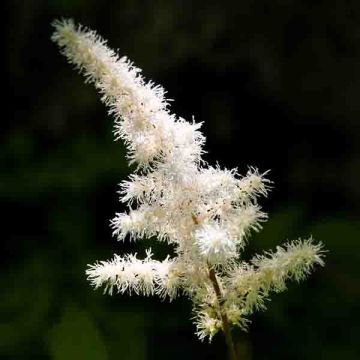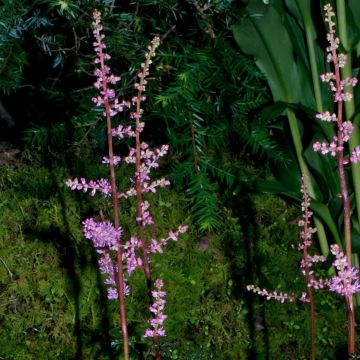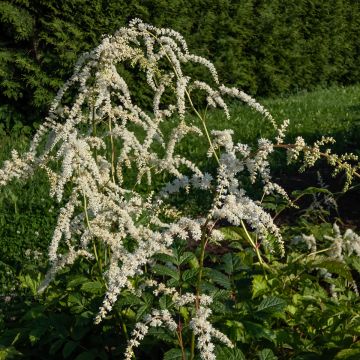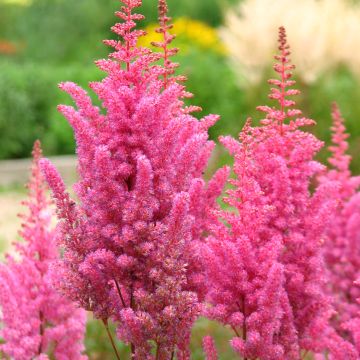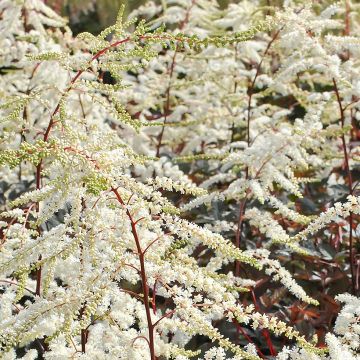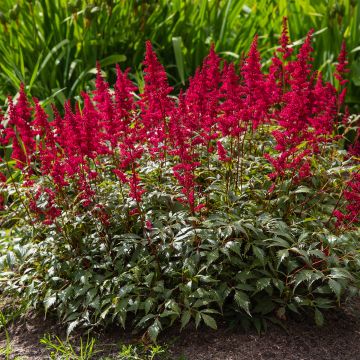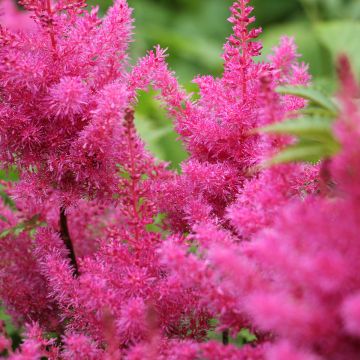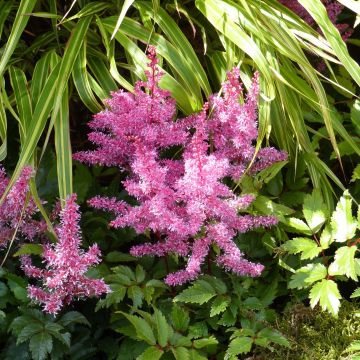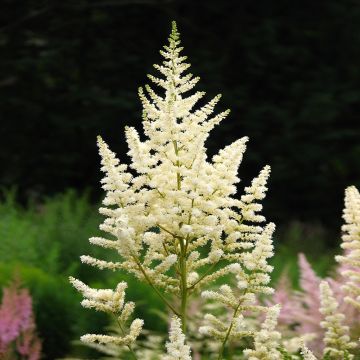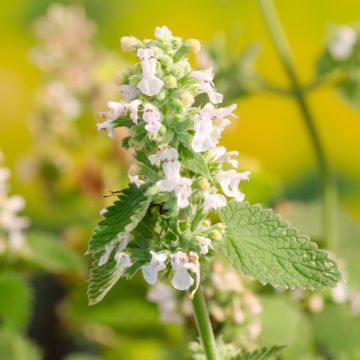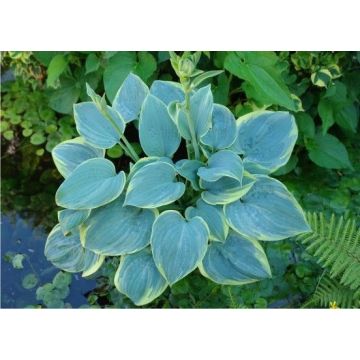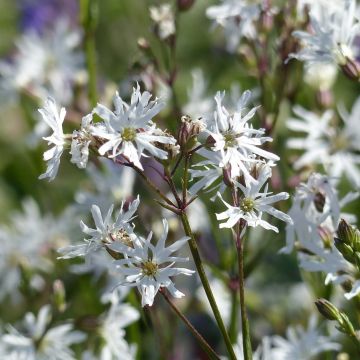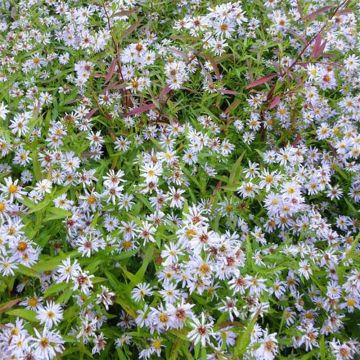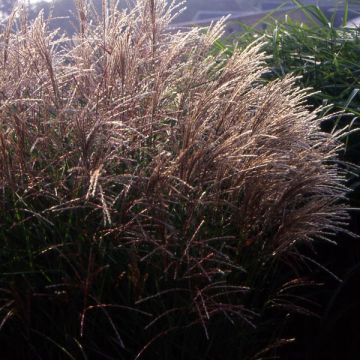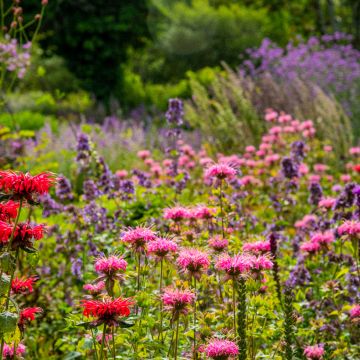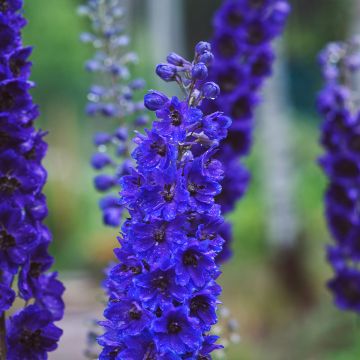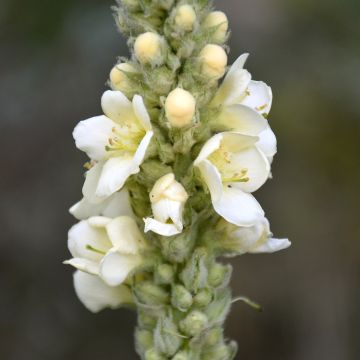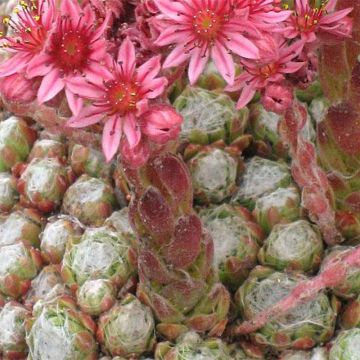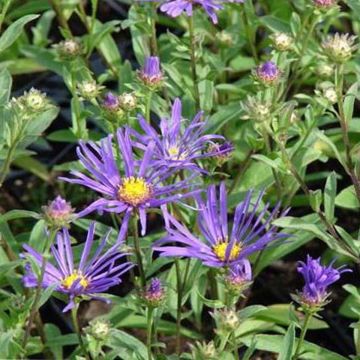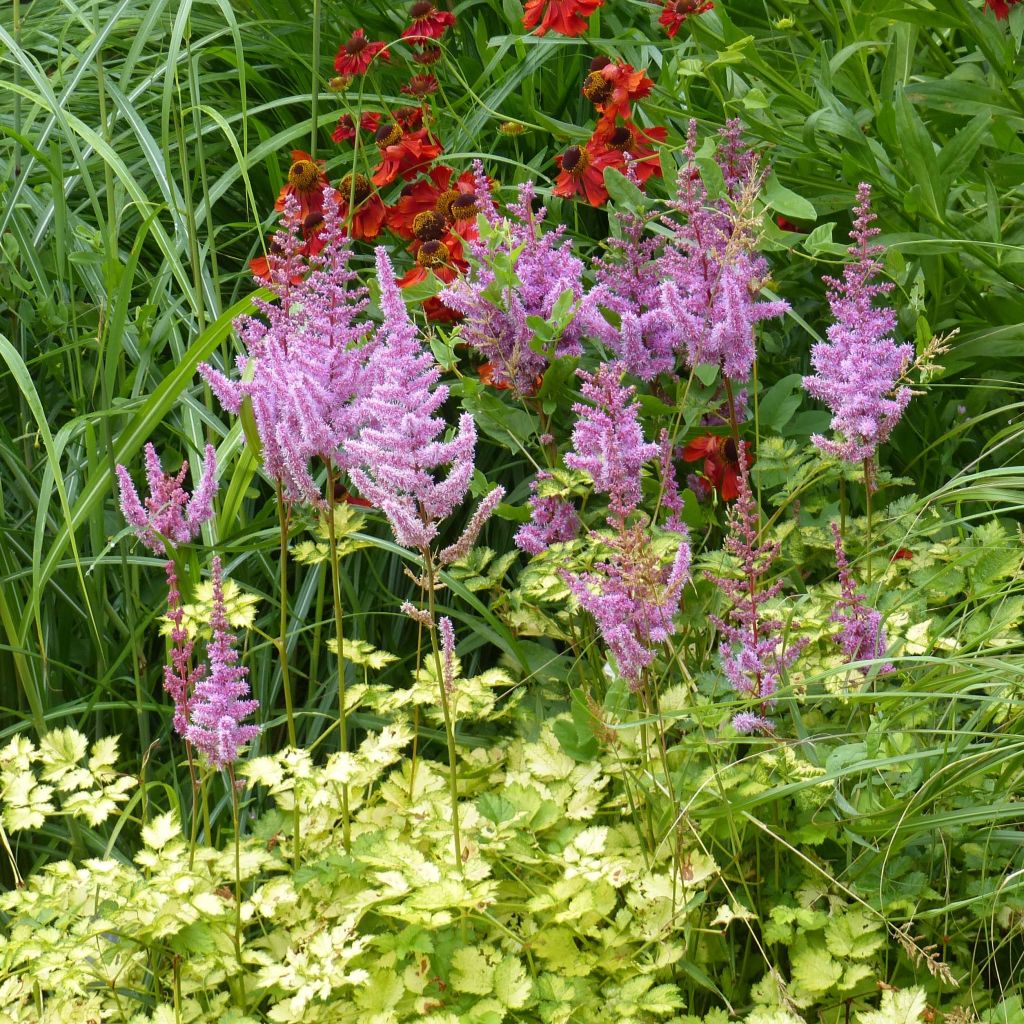

Astilbe Color Flash Lime
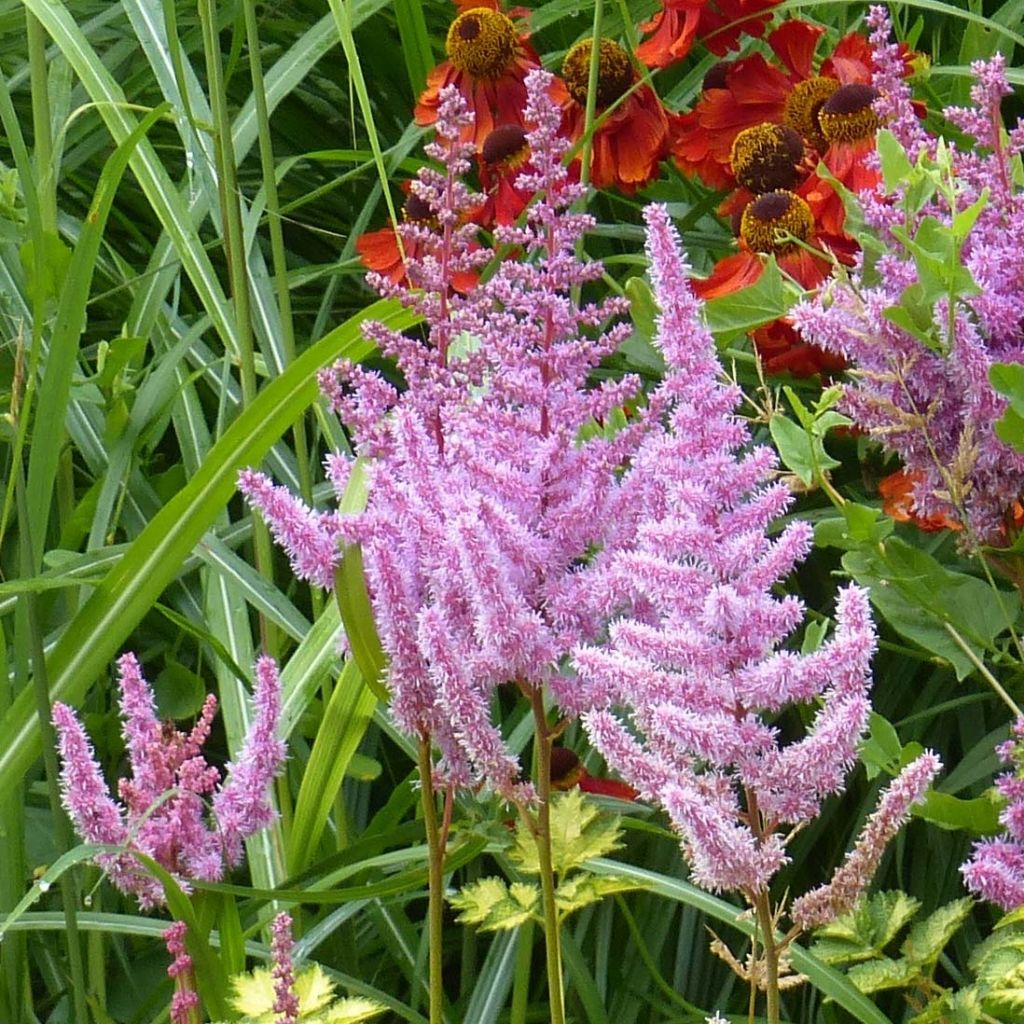

Astilbe Color Flash Lime
Astilbe Color Flash Lime
Astilbe x arendsii Color Flash Lime
Arendsii Astilbe, False Goat's Beard, False Spirea
This item cannot be shipped to the selected country
Delivery charge from €5.90
Delivery charge from €5.90
Delivery charge from €5.90
More information
Schedule delivery date,
and select date in basket
This plant carries a 12 months recovery warranty
More information
We guarantee the quality of our plants for a full growing cycle, and will replace at our expense any plant that fails to recover under normal climatic and planting conditions.
From €5.90 for pickup delivery and €6.90 for home delivery
Express home delivery from €8.90.
From €5.90 for pickup delivery and €6.90 for home delivery
Express home delivery from €8.90.
From €5.90 for pickup delivery and €6.90 for home delivery
Express home delivery from €8.90.
Does this plant fit my garden?
Set up your Plantfit profile →
Description
Astilbe 'Beauty of Lisse', more commonly marketed as Color Flash Lime, is a variety that is distinguished above all by its beautiful golden spring foliage, a colour never before seen in these plants. It takes on a greener hue in summer when its flowers appear in feathery spikes of tender pink. The small size of this variety, as well as its precious appearance, make it particularly suitable for ornamental use in planters or in a semi-shaded border. Like all astilbes, this perennial is best grown in soil that remains moist in summer, preferably in partial shade.
The cultivar Color Flash Lime is one of many hybrids resulting from the work of Georg Arends, a German nurseryman. This original selection was awarded at the Courson in May 2007. It belongs to the Saxifragaceae family. It is a variety of modest stature: 30 cm (12in) in height with a spread of 25 cm (10in). It is therefore often placed at the front of borders, surrounded by its shade companions such as ferns and Hostas. This rhizomatous perennial forms an upright clump, consisting of a group of stems covered with compound, highly dissected, toothed leaves that change from golden yellow in spring to lime green in summer. Flowering takes place in July-August and consists of plume-like inflorescences composed of numerous small pink flowers. The deciduous vegetation of the astilbe disappears in winter and emerges from the ground in spring.
When planted in a row astilbes can highlight shaded paths or the edges of ponds in which they are reflected. When planted alone, these perennials contrast with their verdant neighbours like Hostas, Ferns, and Solomon's seals. At the end of the season, leave the inflorescences to dry in place to maintain a tall backdrop or remove some spikes to make dried bouquets of autumn. The flowers are very beautiful in floral compositions and dry bouquets. In woodland areas, associate astilbes with other moisture-loving perennials.
Report an error about the product description
Astilbe Color Flash Lime in pictures
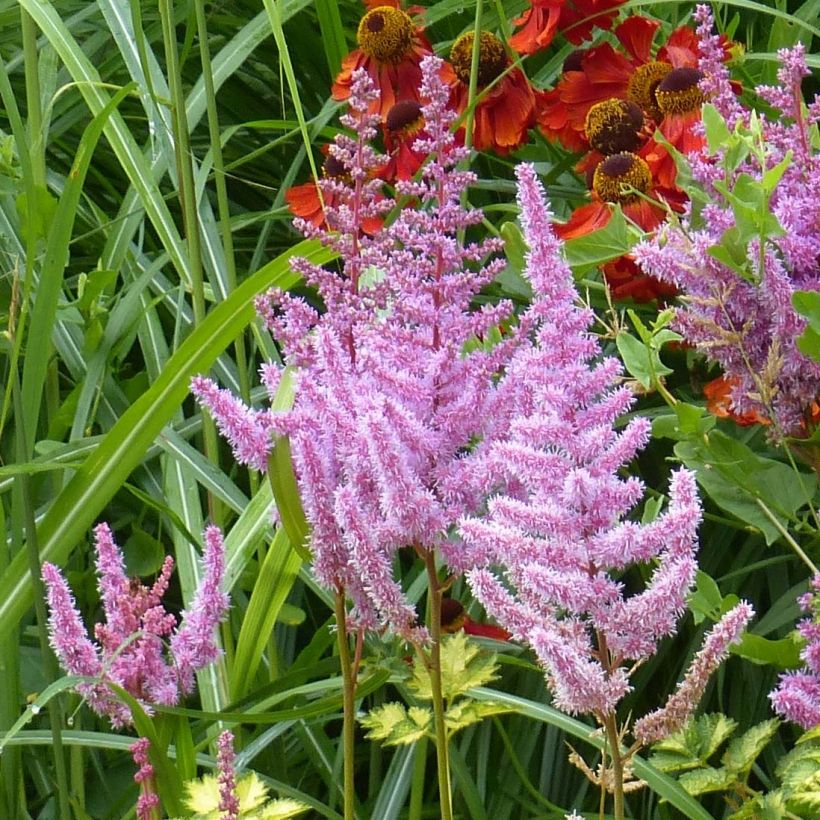



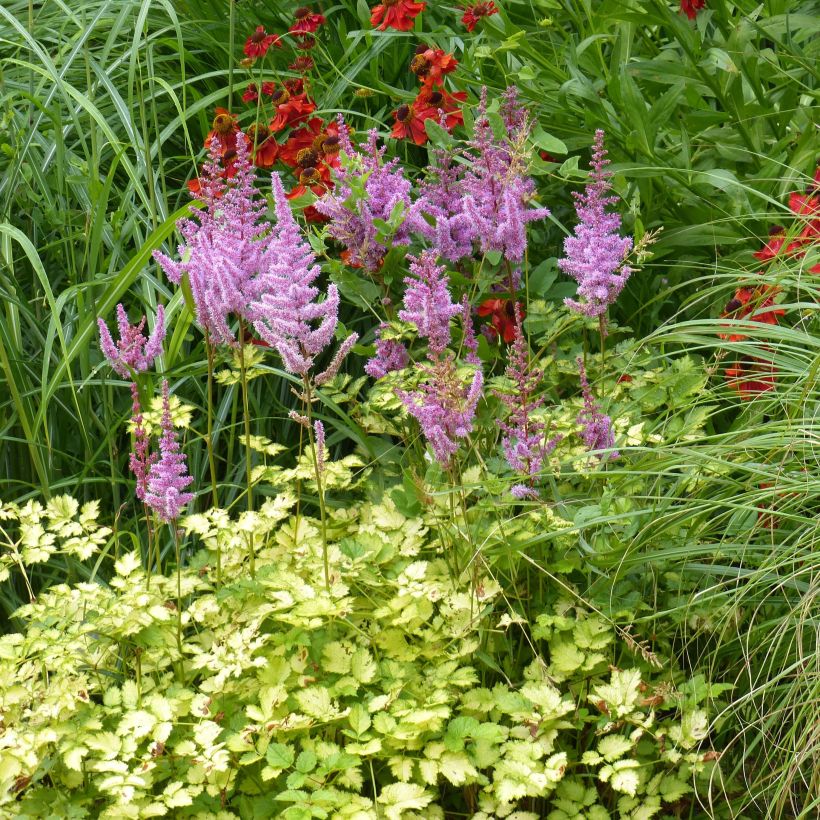

Flowering
Foliage
Plant habit
Botanical data
Astilbe
x arendsii
Color Flash Lime
Saxifragaceae
Arendsii Astilbe, False Goat's Beard, False Spirea
Beauty of Lisse'
Cultivar or hybrid
Other Astilbe - False Goatsbeard
Planting and care
Astilbe thrives mainly in partial shade and in soils that remain moist, even marshy and waterlogged in summer. You can plant it in gentle sunlight but avoid the hottest hours of the day. Plant in spring or autumn in soil rich in organic matter and make sure it never lacks water from spring until the end of summer. Avoid excessively chalky soils.
To plant, work the soil to a depth of 20 cm (8in)and place a base fertiliser in the planting hole. Remove from its pot and place your plant, covering the top of the root ball with 3 cm (1in) of soil. Then fill in and water copiously to eliminate air pockets. In dry weather, water regularly for a few weeks to facilitate rooting. Astilbe requires very little maintenance, just keep the soil moist and add compost and fertilizer in spring. In winter flowers and young foliage can be damaged by spring frosts. After flowering, cut the flower stems to encourage the foliage. In November trim the plants to about 10 cm (4in). Avoid digging near these plants, as the rootstocks develop on the surface. These plants are resistant to diseases and rarely attacked by insects. Ignored by slugs, they can be susceptible to powdery mildew and fungal spots.
Planting period
Intended location
Care
-
, onOrder confirmed
Reply from on Promesse de fleurs
Summer flowering perennials
Haven't found what you were looking for?
Hardiness is the lowest winter temperature a plant can endure without suffering serious damage or even dying. However, hardiness is affected by location (a sheltered area, such as a patio), protection (winter cover) and soil type (hardiness is improved by well-drained soil).

Photo Sharing Terms & Conditions
In order to encourage gardeners to interact and share their experiences, Promesse de fleurs offers various media enabling content to be uploaded onto its Site - in particular via the ‘Photo sharing’ module.
The User agrees to refrain from:
- Posting any content that is illegal, prejudicial, insulting, racist, inciteful to hatred, revisionist, contrary to public decency, that infringes on privacy or on the privacy rights of third parties, in particular the publicity rights of persons and goods, intellectual property rights, or the right to privacy.
- Submitting content on behalf of a third party;
- Impersonate the identity of a third party and/or publish any personal information about a third party;
In general, the User undertakes to refrain from any unethical behaviour.
All Content (in particular text, comments, files, images, photos, videos, creative works, etc.), which may be subject to property or intellectual property rights, image or other private rights, shall remain the property of the User, subject to the limited rights granted by the terms of the licence granted by Promesse de fleurs as stated below. Users are at liberty to publish or not to publish such Content on the Site, notably via the ‘Photo Sharing’ facility, and accept that this Content shall be made public and freely accessible, notably on the Internet.
Users further acknowledge, undertake to have ,and guarantee that they hold all necessary rights and permissions to publish such material on the Site, in particular with regard to the legislation in force pertaining to any privacy, property, intellectual property, image, or contractual rights, or rights of any other nature. By publishing such Content on the Site, Users acknowledge accepting full liability as publishers of the Content within the meaning of the law, and grant Promesse de fleurs, free of charge, an inclusive, worldwide licence for the said Content for the entire duration of its publication, including all reproduction, representation, up/downloading, displaying, performing, transmission, and storage rights.
Users also grant permission for their name to be linked to the Content and accept that this link may not always be made available.
By engaging in posting material, Users consent to their Content becoming automatically accessible on the Internet, in particular on other sites and/or blogs and/or web pages of the Promesse de fleurs site, including in particular social pages and the Promesse de fleurs catalogue.
Users may secure the removal of entrusted content free of charge by issuing a simple request via our contact form.
The flowering period indicated on our website applies to countries and regions located in USDA zone 8 (France, the United Kingdom, Ireland, the Netherlands, etc.)
It will vary according to where you live:
- In zones 9 to 10 (Italy, Spain, Greece, etc.), flowering will occur about 2 to 4 weeks earlier.
- In zones 6 to 7 (Germany, Poland, Slovenia, and lower mountainous regions), flowering will be delayed by 2 to 3 weeks.
- In zone 5 (Central Europe, Scandinavia), blooming will be delayed by 3 to 5 weeks.
In temperate climates, pruning of spring-flowering shrubs (forsythia, spireas, etc.) should be done just after flowering.
Pruning of summer-flowering shrubs (Indian Lilac, Perovskia, etc.) can be done in winter or spring.
In cold regions as well as with frost-sensitive plants, avoid pruning too early when severe frosts may still occur.
The planting period indicated on our website applies to countries and regions located in USDA zone 8 (France, United Kingdom, Ireland, Netherlands).
It will vary according to where you live:
- In Mediterranean zones (Marseille, Madrid, Milan, etc.), autumn and winter are the best planting periods.
- In continental zones (Strasbourg, Munich, Vienna, etc.), delay planting by 2 to 3 weeks in spring and bring it forward by 2 to 4 weeks in autumn.
- In mountainous regions (the Alps, Pyrenees, Carpathians, etc.), it is best to plant in late spring (May-June) or late summer (August-September).
The harvesting period indicated on our website applies to countries and regions in USDA zone 8 (France, England, Ireland, the Netherlands).
In colder areas (Scandinavia, Poland, Austria...) fruit and vegetable harvests are likely to be delayed by 3-4 weeks.
In warmer areas (Italy, Spain, Greece, etc.), harvesting will probably take place earlier, depending on weather conditions.
The sowing periods indicated on our website apply to countries and regions within USDA Zone 8 (France, UK, Ireland, Netherlands).
In colder areas (Scandinavia, Poland, Austria...), delay any outdoor sowing by 3-4 weeks, or sow under glass.
In warmer climes (Italy, Spain, Greece, etc.), bring outdoor sowing forward by a few weeks.

































